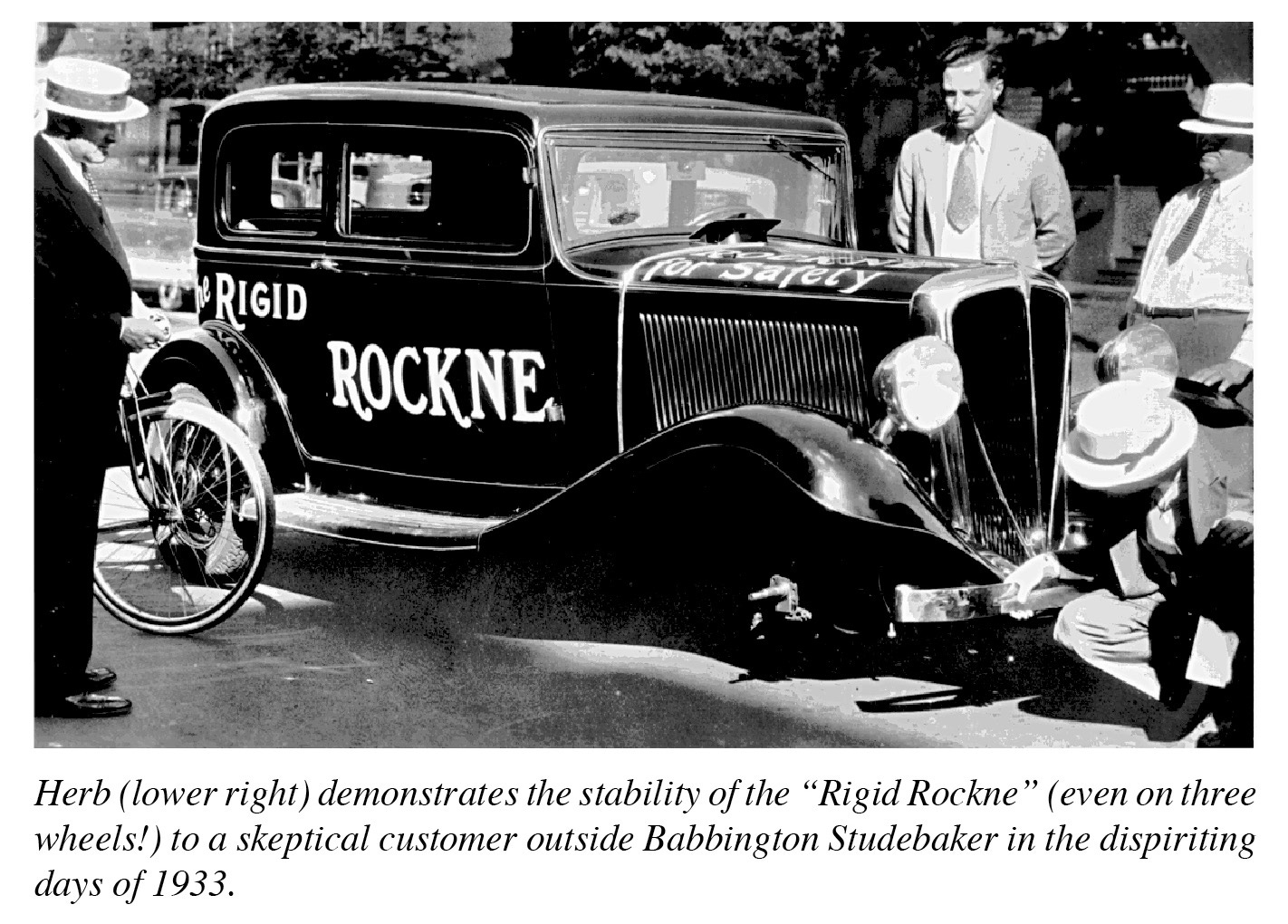ON THE FIRST of July in 1933, Albert Erskine, who had been president of Studebaker when it went into bankruptcy, killed himself. The news sent a shudder through Garth, who imagined, unrealistically, that he might have felt driven to such an act if Herb hadn’t halted his downward slide. Herb and Garth heard the news about Erskine while they were in Boston, picking up a supply of coarse goods from Uncle Ben.
From the start, Garth enjoyed the coarse goods trade in a way that Herb never had and never would. He liked the backslapping and elbow nudging that went with it, and he loved the secretiveness it engendered. He liked having things to hide from May, being out on false pretenses, meeting clients in dark corners of bars. Herb sold a piece now and then, since Studebaker sales were still poor, but he never sold to a Babbingtonian, only to men passing through. Studebakers were what Herb wanted to sell, and he turned to coarse goods only to make ends meet. Garth put nearly all his effort into coarse goods and almost none into Studebakers. He spent part of every day in the showroom, but Herb virtually ran the operation.
May and Lorna believed what Herb and Garth told them: Herb had delivered such a moving account of the suffering his father had visited on his mother that Garth shook himself sober and pulled himself from the Slough of Despond. They allowed themselves to believe the stories Herb and Garth told about successful sales (though most seemed to be to out-of-towners who were never seen driving their Studebakers around Babbington), but both May and Lorna were wary. May was surprised to find herself wondering, now and then, what life would be like on her own, having to look out for herself, having only herself to look out for. Lorna found herself planning and scheming, devising ways to make some money, to keep herself and Herb well away from the edge of the dark valley Garth had slid into.
Now that Ella was in school, Lorna could work undisturbed and undetected for several hours every day. She went back to work for Luther. To disguise what she was doing, she also went back to work for Joseph the Jeweler, for whom she had done repairs when she and Herb were living at the Mikszaths’. She sat Herb down one evening and confessed that she had worked for Mr. Joseph.
“I knew,” said Herb. He chuckled and tousled her hair.
“You did?”
“Sure. I didn’t know who you worked for, but I knew you were working.”
“You did?”
“Sure I did. You were careful, but you gave yourself away.”
“How?”
“You never went over your budget. You always had enough. You never had to ask for a little extra for the household, the way you used to.”
“But you never said anything.”
“I was going to,” said Herb. “The day I figured it out, I was going to, but, you know, you were humming while you were cooking, and kind of bustling around, full of life, and I didn’t want to — I didn’t want to change that.”
“Thank you, Herb. So you won’t mind if I go back? He doesn’t have a lot of work for me — I wouldn’t be putting in more than a couple of hours a day. Say you won’t mind.”
“I won’t mind.”
Lorna spent a couple of hours every day working for Mr. Joseph, and many more hours working for Luther. She enlisted May’s help in deceiving Herb about those extra hours. She told May that she didn’t want Herb to know how hard she was working, so May concocted joint shopping trips, afternoons spent swimming and sailing, and hours idled away gossiping over coffee.
Working on the sly and deceiving each other, Herb and Lorna got by. They didn’t prosper, but they got by.
[to be continued on Wednesday, September 7, 2022]
In Topical Guide 333, Mark Dorset considers Historical Events, Real and Fictional and Historical Personages, Real and Fictional from this episode.
Have you missed an episode or two or several?
You can begin reading at the beginning or you can catch up by visiting the archive or consulting the index to the Topical Guide.
You can listen to the episodes on the Personal History podcast. Begin at the beginning or scroll through the episodes to find what you’ve missed.
You can ensure that you never miss a future issue by getting a free subscription. (You can help support the work by choosing a paid subscription instead.)
At Apple Books you can download free eBooks of “My Mother Takes a Tumble,” “Do Clams Bite?,” “Life on the Bolotomy,” “The Static of the Spheres,” “The Fox and the Clam,” “The Girl with the White Fur Muff,” “Take the Long Way Home,” “Call Me Larry,” and “The Young Tars,” the nine novellas in Little Follies, and Little Follies itself, which will give you all the novellas in one handy package.
You’ll find overviews of the entire work in An Introduction to The Personal History, Adventures, Experiences & Observations of Peter Leroy (a pdf document) and at Encyclopedia.com.





